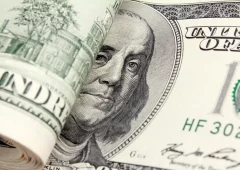USA Proposes New Rules to Protect Crypto Users from Fraud
12.01.2025 19:00 1 min. read Alexander Stefanov
The U.S. Consumer Financial Protection Bureau (CFPB) has proposed new rules to enhance protections for cryptocurrency users, requiring providers to reimburse victims of fraud or theft.
Announced on January 10, the framework aims to extend existing financial regulations to crypto accounts, treating them similarly to traditional bank accounts.
The proposal includes redefining “funds” to cover cryptocurrencies and other assets used as mediums of exchange. Wallet providers would also need to inform users about their rights, transaction fees, and dispute resolution options, while providing regular updates on account changes. Public feedback is open until March 31 before final decisions are made.
While the proposal seeks to address rising security risks, including the $3 billion lost to crypto hacks in 2024, it has faced criticism. Experts argue that its broad scope creates uncertainty, especially for non-custodial wallet developers. Legal professionals like Jai Massari and Drew Hinkes have called for clearer guidelines, warning that vague definitions and impractical requirements, such as provisional credits, could hinder adoption.
Some see the rules as overreach. Bill Hughes from Consensys criticized the CFPB’s approach, suggesting it could stifle innovation unless reined in by future U.S. leadership. Despite the pushback, the proposal reflects increasing regulatory attention on balancing consumer protection with the complexities of the crypto space.
-
1
California Sets Stage for Crypto Payments in Government Licensing
04.06.2025 18:00 2 min. read -
2
Crypto Bill Sparks Uproar Over Trump Ties and Regulatory Conflicts
06.06.2025 10:00 1 min. read -
3
EU Eyes DeFi Rules Without Defining What It Is
07.06.2025 18:00 2 min. read -
4
Switzerland Prepares to Join Global Crypto Tax Network by 2026
07.06.2025 20:00 1 min. read -
5
Trump’s CFTC Pick Pledges Crypto Regulatory Clarity for Blockchain’s Future.
11.06.2025 14:00 1 min. read
Europe Takes the Lead in Crypto as U.S. Stalls on Regulation
Europe is emerging as the new global crypto hub, propelled by its MiCA regulatory framework, which is attracting investors and platforms alike.
Norway Weighs Temporary Freeze on Crypto Mining to Conserve Energy
Norway may hit the pause button on cryptocurrency mining later this year. The government announced Friday it will study whether to impose a provisional ban on mining data centers, arguing that energy and grid capacity should be reserved for more pressing needs.
Wall Street Prepares for Stablecoin Integration as Regulatory Path Clears
Following the Senate’s approval of the GENIUS Act, U.S. financial institutions are signaling growing interest in stablecoins for settlement and payments.
Bangkok Opens Five-Year Tax Holiday for Crypto Traders
Bangkok has thrown new weight behind its digital-asset ambitions, carving out a five-year capital-gains tax holiday for Thais who sell cryptocurrencies such as Bitcoin through locally licensed exchanges.
-
1
California Sets Stage for Crypto Payments in Government Licensing
04.06.2025 18:00 2 min. read -
2
Crypto Bill Sparks Uproar Over Trump Ties and Regulatory Conflicts
06.06.2025 10:00 1 min. read -
3
EU Eyes DeFi Rules Without Defining What It Is
07.06.2025 18:00 2 min. read -
4
Switzerland Prepares to Join Global Crypto Tax Network by 2026
07.06.2025 20:00 1 min. read -
5
Trump’s CFTC Pick Pledges Crypto Regulatory Clarity for Blockchain’s Future.
11.06.2025 14:00 1 min. read


